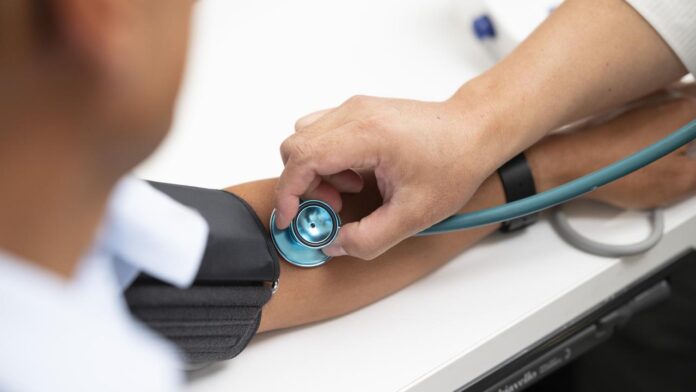[ad_1]
Private health funds have hit back at the government after it rejected its request to deliver the biggest premium hike in at least six years.
Health Minister Mark Butler declined the request from 31 insurers that could have delivered an average increase of up to 6 per cent, insisting the funds go back to the drawing board and come up with a more reasonable figure.
But Private Healthcare Australia, the peak body that represents 21 funds, insisted the proposal was fair.
Chief executive Rachel David said it reflected inflationary pressures, record claims and covered the essential upgrades to thwart cyber attacks.
“The cost of medical and hospital services increased 5.9 per cent this year and there’s been a 9.6 per cent surge in hospital admissions funded by insurers,” she said.
“This is putting pressure on premiums.
“Inflation is hitting the health sector hard. Hospitals are struggling with the rising costs of recruitment, power and food and this flows through to health funds.
“Every week, hospital groups are asking major health funds for additional funding beyond their agreed contracts to chase inflation.”
More than half of Australians have hospital or extras cover – with more than one million people signing up since the start of the pandemic.
Health insurers can increase premiums once per year but only with the minister’s approval.
Dr David said the PHA understood many Australians were “doing it very tough right now” amid the cost of living crunch but the proposed increase would fall short of increases in other sectors.
Home and car insurance premiums jumped by 14 per cent while electricity costs soared by 13 per cent, Dr David said.
“Health insurance continues to deliver high value for members, with 86 cents in every dollar spent on premiums going back to members in benefits paid for their healthcare.”
“This is higher than any other form of insurance.”
Part of the problem, PHA said, was the inflated price of generic medical devices in Australia.
“Australians are paying the highest prices in the world for medical devices due to an outdated price setting arrangement with multinational medtech companies,” Dr David said.
“We are paying 30 to 100 per cent more for common medical devices such as insulin pumps compared to people in New Zealand, the United Kingdom, France and South Africa.”
The health insurers have until mid-January to submit their proposal and if Mr Butler were to agree to it, the change would come into effect by April 1.
[ad_2]
Source link


